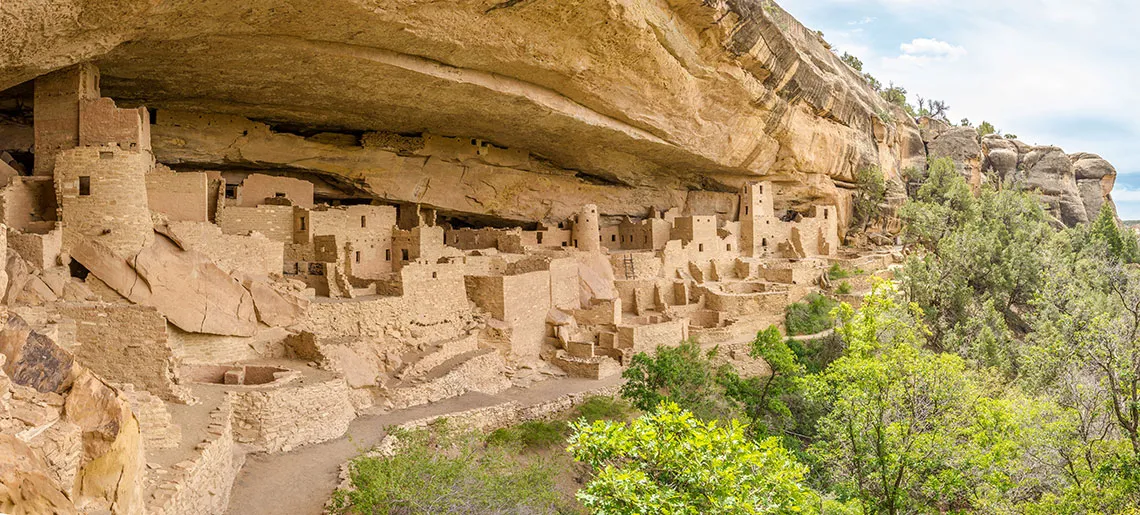UArizona Launches Reinvigorated, Accessible Heritage Conservation Certificate Program

“The University of Arizona Heritage Conservation Certificate was chock full of great courses with hands-on experience,” says Susan Bierer, a 2018 graduate. It’s a program that she found to be “indispensable,” particularly now that she’s an architectural historian for a federal agency.
The certificate’s value for those moving into or advancing in a heritage conservation career is what Gina Chorover, Heritage Conservation Certificate program chair at the College of Architecture, Planning and Landscape Architecture, wanted to keep at the forefront as the college reinvigorated the program to be more accessible.
“The Graduate Certificate in Heritage Conservation already provided an immersive educational experience,” says Chorover. “Now, we’ve expanded our offerings, reduced program fees and made the program more accessible by offering the courses fully online.”
The 15-unit program relaunched this summer, and students both on campus and off may complete the certificate by itself or coupled with another graduate degree program, as Bierer did with CAPLA’s Master of Science in Architecture.
The certificate, which may be completed in two semesters, is comprised of five dynamic courses:
- Introduction to the Conservation of Cultural Resources
- Documentation and Interpretation of the Historic Built Environment
- Contemporary Architecture and Urban Theory
- Cultural Landscapes
- Preservation Planning
Cultural Landscapes is a new course that will be taught by CAPLA Dean and Professor of Landscape Architecture Nancy Pollock-Ellwand, who recently co-chaired the World Heritage Evaluation Panel for ICOMOS (the International Council of Monuments and Sites) and serves regularly as a world heritage site evaluator.
“The ultimate purpose of cultural landscape conservation is to represent stories of powerful places that are more equitably protected and interpreted, more sustainably managed and more effectively connected to community,” says Pollock-Ellwand. “In the course, students will learn the vocabulary, challenges and approaches to the protection of cultural landscapes from around the world—culminating in a capstone project in which they select, analyze and reflect upon the best ways to conserve a significant cultural landscape.”
The certificate program is aligned with the Desert Southwest Cooperative Ecosystem Studies Unit, a collaborative network of federal, university and nongovernmental agencies studying and managing cultural resources across Arizona, California, Nevada, New Mexico and Texas—providing a unique opportunity for students to work on projects with federal agencies.
In her time at CAPLA, for example, Bierer researched and helped draft two short-form Historic American Landscape Survey submissions to the National Park Service. She also co-authored a heritage conservation plan for the City of Tucson.
“I called on both of these projects as examples when applying for jobs,” she recalls. “They provided excellent talking points during interviews.”
The certificate prepares students from a variety of backgrounds for practice in fields such as heritage conservation, cultural resource management and historic preservation. Combined with complimentary graduate degrees, certificate holders will find they are prepared for a number of careers, including historical architects and landscape architects, cultural landscape specialists, archivists, museum curators, educators, cultural anthropologists and urban planners in historic preservation. Students find work in the public, private and nonprofit sectors.
“The Certificate in Heritage Conservation is a great way to add the professional skills needed to work in various historic preservation fields,” says Bierer. “I found the faculty to be very knowledgeable, hands-on and supportive. I truly enjoyed my time in the program.”
To learn more about UArizona’s Graduate Certificate in Heritage Conservation, visit capla.arizona.edu/heritage or contact Emilio Romero, graduate student services coordinator, at eromero@arizona.edu or 520-621-9819.



